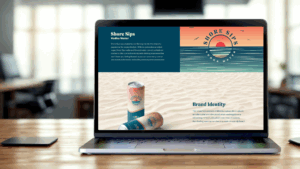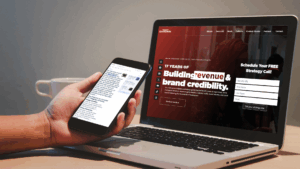The real estate market is set to skyrocket, projected to hit $634.90 trillion in 2024 and keep growing at a steady pace of 2.77% annually (according to Statista). By 2029, we’re looking at a massive $727.80 trillion market. For real estate agents, this growth means tons of opportunities—but also fierce competition.
If you’re ready to make your mark, now’s the time to level up your marketing for real estate agents. Here, we’ll dive into the strategies that will actually work in 2025, from boosting your online presence to building trust and connecting with clients in memorable ways. Get ready to discover powerful, practical insights to help you stand out and succeed in a thriving, competitive market.

How to Market Yourself as A Real Estate Agent in 2025
Marketing yourself as a real estate agent in 2025 is all about standing out, building trust, increasing visibility, and forming strong client relationships.
We’ll cover the key strategies that can help you strengthen your brand, expand your reach, and turn potential leads into loyal clients.
Database and Relationship Building
Your network is your business’s foundation. Build a high-value database that includes past clients, personal contacts, and a professional network. This isn’t just a contact list; it’s a resource for consistent leads and referrals. Organize contacts by type, set up regular, personalized touchpoints, and host events like client appreciation gatherings or first-time buyer workshops to deepen connections. Ask for referrals by offering incentives and sharing success stories to establish trust and encourage clients to spread the word. Cultivate a supportive network that goes beyond transactions, fostering a community that sustains your growth year-round.

Geographic Territory Dominance
Become a fixture in your chosen market by focusing on hyper-local strategies. Develop a neighborhood-specific marketing plan that includes sharing local insights, running targeted ads, and forming partnerships with area businesses. Hosting events like neighborhood meetups, charity sponsorships, or educational workshops strengthens your local presence and builds trust with potential clients. Event sponsorships further increase your visibility, showing that you’re invested in the community and establishing your brand as the go-to resource for real estate.
Top-of-Mind Awareness (TOMA)
Keeping your brand visible is essential, and traditional advertising channels like billboards, newspapers, and local radio still play a crucial role in achieving top-of-mind awareness. Consistent presence across these platforms reinforces your brand identity, ensuring that potential clients think of you first when they’re ready to buy or sell. This steady exposure builds familiarity and credibility in the community, which is especially impactful in real estate, where trust is a vital factor in choosing an agent.

Analyze Your Website Visitors
Understanding who visits your website and what they’re looking for can significantly boost your marketing effectiveness. Use tools like Google Analytics to monitor visitor behavior, including demographics, popular pages, and click patterns. This data helps you refine content to match visitor interests and optimize your website layout for easier navigation. For instance, if analytics show a high interest in neighborhood guides, consider adding similar content or adjusting your menu to feature local insights prominently. This targeted approach helps convert casual visitors into engaged clients.
Utilize User-Generated Content
Incorporating user-generated content (UGC) into your social media and marketing strategy enhances authenticity and local connection. Ask permission to share relevant posts from local creators, like a city skyline photo from a local photographer, and credit them appropriately. This approach not only enriches your content but also fosters community relationships. UGC can provide a fresh perspective on the area you serve, making your social profiles more engaging and relatable to potential clients while positioning you as an advocate for the community.
Competitor Analysis
Regularly reviewing your competitors’ websites, ads, and social media helps you stay competitive and identify opportunities. Observe what works for them, and note where they might be missing the mark. If a competitor is successfully using video tours but lacks a strong presence in local market insights, consider filling that gap by offering localized blog posts or videos. This approach allows you to refine your offerings strategically, highlighting your unique strengths while positioning yourself effectively against competitors.

Build a Website to Increase Trust and Conversion
A well-designed website is the foundation of a credible real estate brand, serving as a central hub for information and client engagement. With 70–80% of people researching online before making any purchase decisions, your website’s professionalism can make a significant impact on conversion rates. A high-quality website lets you guide visitors to useful landing pages, addressing their needs and seamlessly converting them into clients.
- A compelling bio that tells your story
- Contact details with a professional email (like contact@yourwebsite.com) to reinforce credibility
- An organized catalog of listings, complete with virtual tours and details
- Client testimonials that share real success stories
- Service breakdowns and special offers that set you apart
With Adapting Social, creating a high-quality real estate website is simple, seamless, and tailored to support every element of your marketing strategy. We handle the tech, so you can focus on what you do best—connecting with clients and building lasting relationships. In just a few clicks, you’ll have a functional, beautiful website that elevates your brand and drives business.
Learn more about our Web Design and Development services.
Website Optimization and SEO
A professional website is the core of your digital presence—ensure it’s optimized with essential services, listings, and a compelling call-to-action. Local SEO is crucial for real estate, so fully optimize your Google Business Profile listing, employ location-specific keywords, and use metadata to rank well in local searches. Regular blogging on topics like market trends and FAQs not only builds authority but also enhances organic traffic through strategic keyword integration.

High-Quality Images, Videos, and Virtual Staging
People buy with emotions, and the visuals you provide are often the first opportunity to make a lasting impact. For most, buying a home is a dream come true, and high-quality images, videos, and virtual staging can evoke the excitement and emotional connection clients are seeking.
Before setting foot in a property, potential buyers want to know it’s worth their time. Your digital presentations—images, videos, and virtual walkthroughs—make that first impression for you. Smart video tours, 3D visualizations, and professionally staged photos allow clients to envision themselves in the space, increasing their engagement and interest.
Investing in professional digital assets may require upfront costs, but it’s worthwhile. Virtual staging and high-quality visuals allow potential clients to explore properties on their terms, at their convenience. This approach isn’t only about convenience—it’s also proven to be effective: 85% of staged homes sell for 6-25% more than their unstaged counterparts, showing that great visuals can significantly boost property value and sales success.
Social Media Marketing
A strong social media presence builds trust and engages potential clients directly. Focus on creating educational posts, virtual tours, and property walkthroughs across platforms like Instagram and Facebook to connect with your audience. Short-form videos, including neighborhood guides, work well on platforms like YouTube and TikTok. Repurpose content—blog posts can become infographics or videos—ensuring a steady stream of valuable, shareable material.
Use Linkedin to Grow Your Network
For real estate agents, LinkedIn is an invaluable tool for building a network of serious, business-focused connections and establishing your brand authority. The platform’s professional environment allows you to connect directly with key decision-makers, share success stories, and position yourself as an expert in real estate.
Use LinkedIn to consistently post insights, tips, and success stories that demonstrate your industry knowledge and experience. Engaging content not only attracts authentic leads but also builds credibility among your peers and prospective clients. By showcasing your expertise and actively participating in relevant conversations, LinkedIn becomes your professional best friend for generating quality leads and enhancing your reputation in the real estate market.

Consider Starting a Podcast
Launching a podcast is an impactful way to build an online presence and establish yourself as a real estate authority. Sharing insights into market trends, home-buying tips, or interviews with other experts gives you a platform to connect with potential clients on a personal level. Podcasts allow listeners to engage with your knowledge and personality, creating a rapport that can drive future business. As your audience grows, this format not only positions you as a knowledgeable expert but also strengthens your personal brand.
Personal Branding and Video Content
A strong personal brand, coupled with high-quality video content, can amplify your reach and connect with potential buyers on a more emotional level. Video storytelling in real estate is especially powerful; cinematic presentations allow buyers to imagine themselves in a home, engaging them on a deeper level. Through video, realtors can highlight key features of a property while showcasing their unique approach to real estate, which appeals directly to pre-qualified buyers and makes the sales process more efficient. Videos that go beyond simple property listings, telling the story of a home and its neighborhood, can resonate with buyers, creating a memorable, impactful impression.
Email Marketing and Lead Nurturing
Email marketing remains an effective channel for staying in touch and nurturing leads. Monthly newsletters with market insights and new listings keep you top-of-mind, and CRM software can streamline follow-ups and segment leads for tailored outreach. Personalization based on buyer or seller status can deepen engagement, creating a more targeted experience for each client segment.
Paid Advertising for Immediate Reach
PPC ads on Google and retargeting campaigns bring your listings directly to active homebuyers, while geo-targeted social media ads on platforms like Facebook and Instagram can increase exposure to your target market. Real estate portal ads, such as Zillow’s Premier Agent, help boost visibility for listings and your profile, making it easy for local clients to find you quickly when they’re ready to act.

List Your Properties on Popular Real Estate Websites
To expand your audience effortlessly, list your properties on well-trafficked real estate sites like Zillow, which attracts over 188 million monthly viewers. These platforms provide high visibility, allowing you to showcase listings to a vast audience actively searching for homes. While competition is high, these sites give you instant access to potential buyers and renters, making it one of the most efficient ways to increase exposure and drive sales.
By leveraging the built-in reach of popular real estate websites, you can connect with motivated buyers and sellers who are already engaged, helping you grow your business with minimal additional effort.
Cold Calling is Still an Effective Strategy
Though often overlooked, cold calling remains a powerful tool in real estate for building direct connections with potential clients. While it may seem intimidating, it’s highly effective—especially when targeting the right audience. Starting with a curated list allows you to focus on leads suited to your business, making conversations more relevant and increasing the chance of success.
Pairing cold calling with email marketing can amplify your results, providing a follow-up point of reference to build familiarity. Mentioning an email you’ve sent offers common ground, making the call feel less intrusive and more personable. In fact, 82% of buyers are open to sales meetings that originated from a old call, proving that this classic approach can still open doors to valuable client relationships.

Building Your Real Estate Brand with Adapting Social
At Adapting Social, we have over 13 years of experience in helping real estate agents build their brand and attract more qualified clients through digital marketing. Our team has deep expertise in the real estate industry and can help you implement these strategies to grow your business. We offer a range of services, including branding, website design, SEO, social media marketing, and content marketing.
In conclusion, real estate agents can get more qualified clients through effective digital marketing and branding strategies. By building a strong brand, creating a professional website, using SEO, using social media, and creating valuable content, agents can stand out in a crowded market. And if you need help with your digital marketing and branding efforts, Adapting Social is here to help. Contact us today to learn more about how we can help you build your brand and grow your business.












